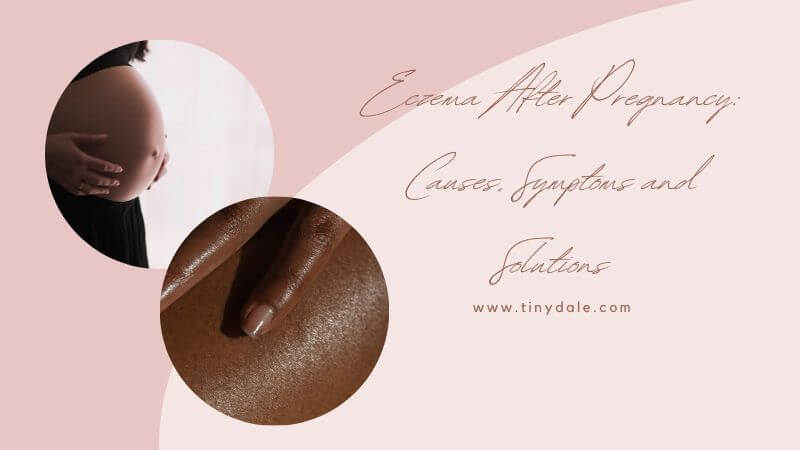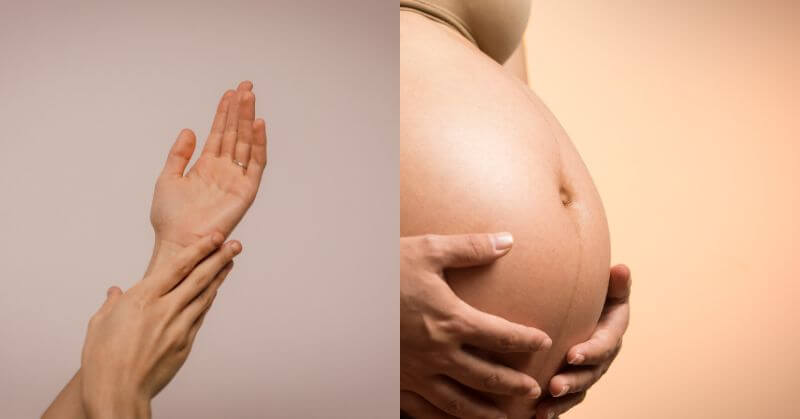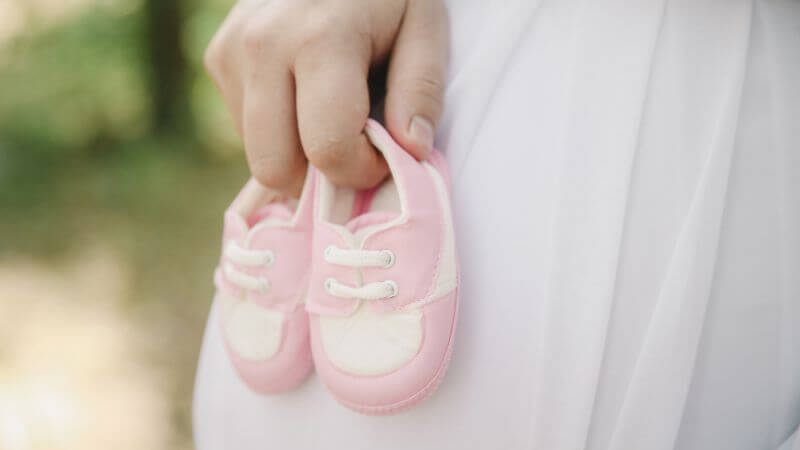Experiencing eczema after pregnancy is not uncommon for women.
And, it can be attributed to various factors related to hormonal changes, stress, and immune system fluctuations during and after pregnancy.
Additionally, some women even get it during pregnancy so it is important to know the signs, symptoms, and treatment for the same.
What Causes Eczema After Pregnancy?

- Hormonal Changes: Hormones play a significant role in skin health, and during pregnancy, hormone levels fluctuate significantly. After childbirth, the sudden drop in hormone levels can affect the skin’s barrier function, leading to dryness and eczema flare-ups.
- Stress: Pregnancy and postpartum periods can be physically and emotionally demanding, leading to increased stress levels. Stress is known to trigger or worsen eczema symptoms.
- Immune System Changes: Pregnancy alters the immune system to accommodate the growing fetus. After childbirth, the immune system readjusts, and this transition can affect the skin’s immune responses.
Symptoms Of Eczema After Pregnancy
- Itching (Pruritus): It is the most prominent and distressing symptom of eczema. The affected skin can feel intensely itchy, leading to scratching, which can worsen the condition.
- Red or Inflamed Skin: Eczema often causes redness and inflammation in the affected areas, which can vary in intensity.
- Rash: Eczema may result in the development of a rash with small, raised bumps that can ooze fluid when scratched.
- Swelling: In some cases, the affected skin may become swollen, especially if scratching is excessive.
- Cracked or Open Sores: Continuous scratching can lead to the skin becoming broken, cracked, and susceptible to infection.
- Localized or Widespread: Eczema can occur in small patches or spread to larger areas of the body, depending on the individual.
- Emotional Impact: Dealing with eczema after pregnancy can also have emotional effects, including stress, anxiety, or feelings of frustration.
How Can Eczema After Pregnancy Affect The Baby?
- Skin-to-skin Contact: Keep your baby away from flare-ups.
- Breastfeeding: Eczema creams and their fragrance can be harmful to babies.
- Emotional Well-being: Don’t let mood changes affect the bond between you and your baby.
- Steroid Creams: Don’t use these creams without a doctor’s proper recommendation.
- Allergens: Postpartum eczema can be avoided by avoiding potential allergens specified by your doctor.
Tips To Manage Postpartum Eczema
- Moisturize Regularly: Keep your skin well-hydrated by applying moisturizers regularly. Opt for fragrance-free and hypoallergenic products to minimize irritation.
- Avoid Triggers: Identify and avoid triggers that exacerbate your eczema. Common triggers include certain fabrics, harsh detergents, extreme temperatures, and certain foods.
- Gentle Skincare: Use mild, gentle, and non-irritating skincare products. Avoid harsh soaps or cleansers that can strip the skin of its natural oils.
- Cool Showers: Take short, lukewarm showers or baths, as hot water can further dry out the skin.
- Loose Clothing: Wear soft, breathable, and loose-fitting clothing to minimize irritation and allow the skin to breathe.
- Stress Management: Engage in stress-reducing activities like meditation, yoga, or spending time with loved ones to help manage stress levels.
- Visit a Dermatologist: If your eczema is severe or not responding to home remedies, consult a dermatologist. They can recommend appropriate treatments, including topical steroids or other medications.
- Allergy Testing: If you suspect certain allergens may be triggering your eczema, consider getting an allergy test to identify and avoid those triggers.
Summary!
It is imperative to remember that everyone’s skin is different, so finding the right combination of treatments for eczema after pregnancy may require some trial and error.
Further, consult with your healthcare provider or a dermatologist to develop a personalized plan to effectively manage your eczema after pregnancy.
Tinydale is on YouTube, Click here to subscribe for the latest videos and updates.
Follow Us: Facebook | Instagram | Twitter | Youtube | Pinterest
Disclaimer: This is not medical advice. It is always advised to take the help of a medical professional if you have any health concerns. This is just for informational purposes only.




